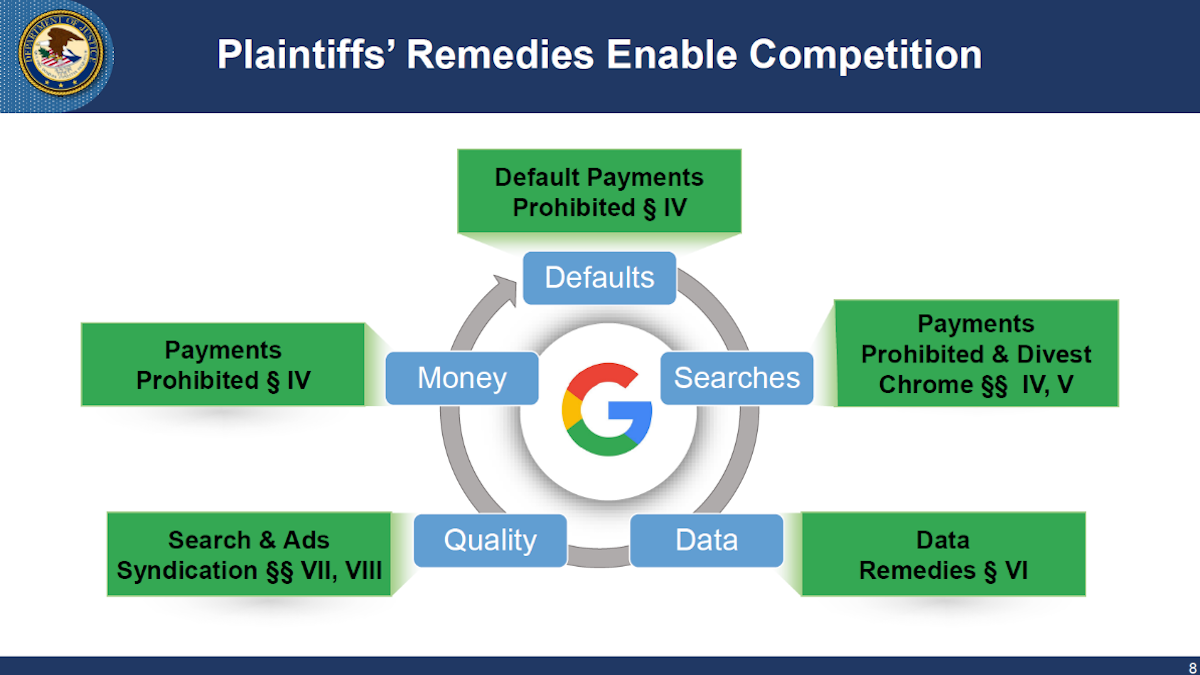DOJ Seeks $15 Billion Escrow and Divestitures as Google Ad Tech Remedies Trial Commences

Alexandria, Virginia – The remedies phase of the U.S. Department of Justice's (DOJ) antitrust case against Google's ad technology business commenced on September 22, 2025, in federal court. The trial aims to determine the measures Google must take after U.S. District Judge Leonie Brinkema ruled that the company holds unlawful monopolies in web advertising technology. Adam Kovacevich, a prominent voice in tech policy, highlighted the significance of the proceedings, stating on social media, "> My colleague @vidushi_law did a great breakdown of the Google ad tech remedies, as part of a larger analysis of the just-started trial."
The DOJ is advocating for significant structural changes, including the forced sale of Google's ad exchange, AdX, and potentially its publisher ad server, DoubleClick for Publishers (DFP), now known as Google Ad Manager (GAM). Additionally, the government proposes that Google establish an escrow account, potentially worth $15 billion, funded by half of its revenues from AdX and DFP. This fund would assist publishers in transitioning to alternative ad tech solutions and cover administrative costs.
Google, however, vehemently opposes divestitures, labeling the DOJ's proposals as "radical and reckless." The tech giant argues that such measures would harm competition, disrupt the digital advertising ecosystem, and are technically unworkable. Instead, Google has put forth its own set of remedies focusing on behavioral changes, such as modifying its policies to enhance interoperability and ease for publishers to utilize competing platforms.
Judge Brinkema's prior ruling found that Google illegally tied AdX to its publisher ad server, leveraging its dominant position to stifle competition. The DOJ's attorney, Julia Tarver Wood, emphasized that leaving Google with the ability to recreate such ties poses too great a risk to competition. Online publishers and rival ad tech developers are closely monitoring the trial, with many expressing hope for remedies that will restore market fairness.
The outcome of this remedies trial is expected to have profound implications for the digital advertising landscape. While Google seeks to avoid a breakup of its ad tech components, the DOJ insists that structural remedies are essential to effectively restore competition. The court's decision will shape the future of how online advertising is bought and sold, potentially rebalancing power dynamics between tech giants, publishers, and advertisers.